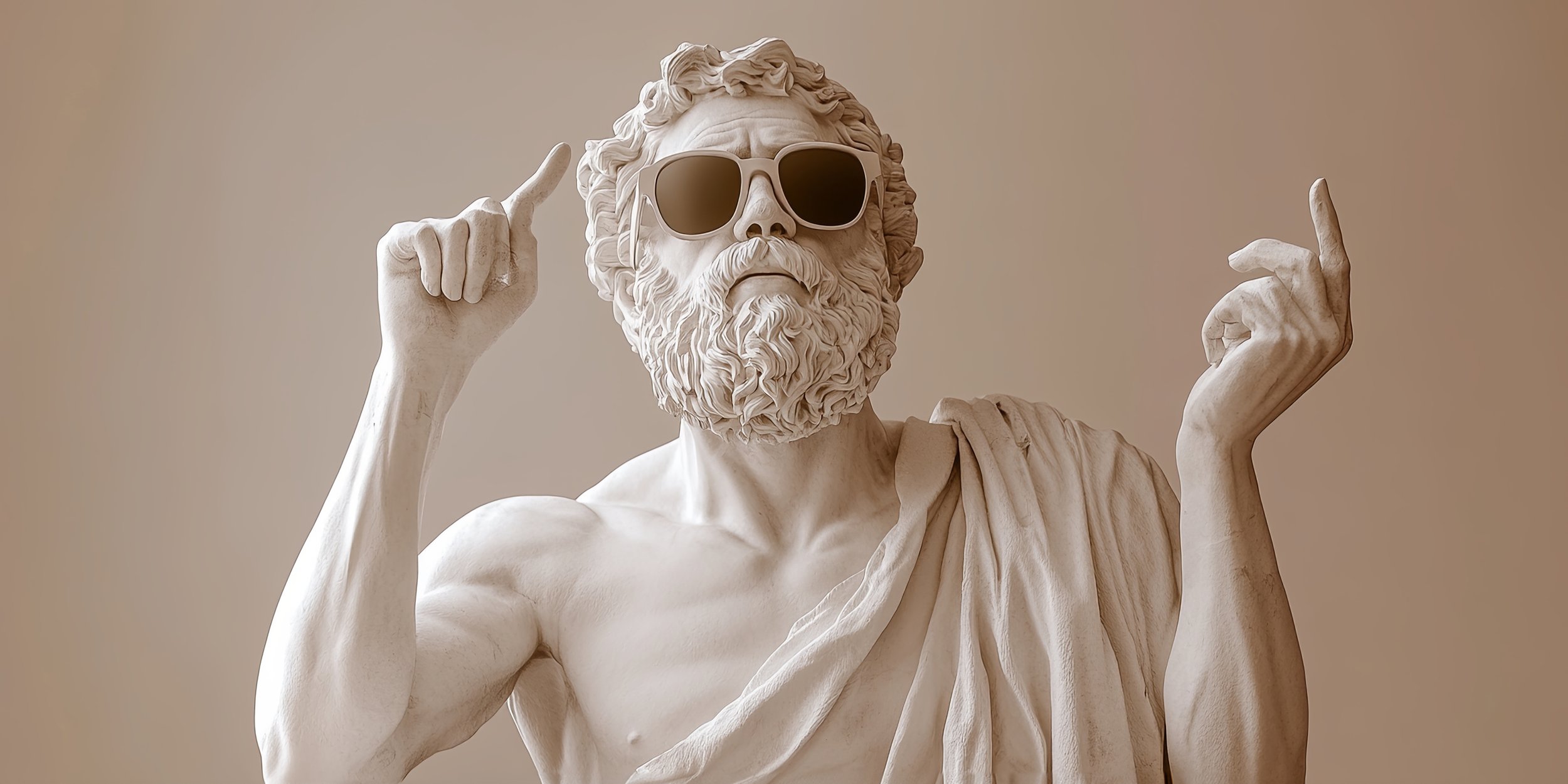The logical choice in an AI-driven world
In every field, from medicine to business to public policy, employers are looking for graduates who can think deeply and act responsibly. Professionals are increasingly expected to make effective decisions that are morally sound. Critical thinking is among the most in-demand skills in today’s job market.
In healthcare, people face life-altering choices affecting patients. In business, companies must balance profits with social responsibility and environmental impact. Philosophy helps students approach these dilemmas with both competence and conscience.
Philosophy grads consistently outperform their peers on graduate school entrance exams like the LSAT, GRE and MCAT.
“It’s not about winning debates or getting into shouting matches,” says Angus Mancini-Miller, a third-year philosophy student. “It’s about justifying your beliefs. If you work in business and maybe you are trying to convince someone to invest, or you are pitching an idea, applying for a job, or discussing a topic in really any field… philosophy sets you up to defend your position.”
For Angus, studying philosophy is more than an academic pursuit—it is a transformative tool for understanding the world and refining the way we think. It helps students become more mindful and reflective in their personal lives, encouraging them to challenge their assumptions and understand the perspectives of others, ultimately improving relationships with family and friends.
Sam MacQuarrie, Angus Mancini-Miller and Kyle Foster founded the SMU Philsophy Society
“Even if you just take one class, philosophy makes you a better reader,” he says. “It helps you to read not just for information, but you also start noticing how things are written and why they’re written that way.”
Angus, along with fellow students Kyle Foster and Sam MacQuarrie, co-founded the SMU Philosophy Society.
“We now have a community where we can have philosophical conversations, whether about school or just ideas that intrigue us,” says Angus. “The society has grown over time, with 10 to 15 regular members. I’m living in the things I'm passionate about. I am living in my passion, which is awesome.”
Because AI can’t think about thinking
Philosophy teaches students how to think about concepts like fairness, autonomy and justice. These skills are increasingly important as we interact with AI-driven systems in the workplace. Understanding the societal impact of AI is not just a technical challenge—it’s a moral one.
AI is revolutionizing industries and reshaping workplaces. It is already influencing our daily lives, from hiring practices to decision-making algorithms. With political turmoil, social divides, economic instability and the complexities of AI, the global landscape is full of challenges.
At Saint Mary’s, philosophy is brought to life by professors who are passionate about helping students grow. Dr. Shelagh Crooks, a member of the philosophy department, exemplifies how a great professor can shape your university experience.
Dr. Crooks is a recipient of the Dr. Geraldine Thomas Educational Leadership Award, the Father William A. Stewart, SJ Medal for Excellence in Teaching, the Association of Atlantic Universities Distinguished Teaching Award, and a 3M National Teaching Fellow.
“If we consume AI, we have to consume it with a critical eye,” says Dr. Crooks. “One of the things you learn in all philosophy classes is to be a skeptic and not to accept what you hear at face value. Instead, ask yourself, ‘Why should I accept this as truth?’ That is not something people do naturally.”
Dr. Shelagh Crooks
“One of the things you learn in all philosophy classes is to be a skeptic and not to accept what you hear at face value. Instead, ask yourself, ‘Why should I accept this as truth?’ ”
“Take Descartes, for example. Doubt for him became liberating. I ask my students, ‘What does doubt feel like to you?’ Most students say, ‘When I am doubting, I feel anxious’ and that the feeling is unpleasant. But we need to doubt to know more—to know better.”
A global perspective, grounded in thought
With the support of his professors, Angus spent part of his summer abroad in a fellowship program at St. Olaf College near Minneapolis, Minnesota. The fellowship focused on philosopher Søren Kierkegaard, allowing him to dive into intensive research at the world’s most extensive Kierkegaard library.
“We would read for hours every day. Then when the library closed, we would play pool, hang out and talk about everything we read. It was probably one of the best months of my life.”
Philosophy is not just an academic discipline—it is a way of approaching the world. Whether you are passionate about technology, social justice, human resources, commerce or health sciences, studying philosophy will develop the skills to thrive in an ever-evolving and complex society.
Learn more



